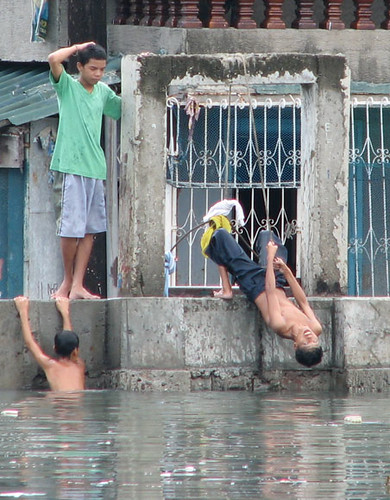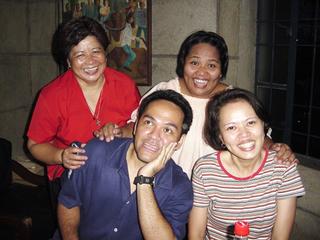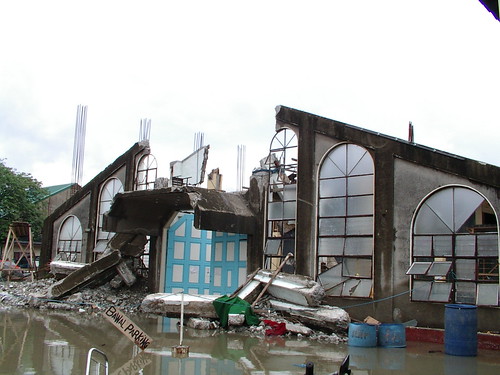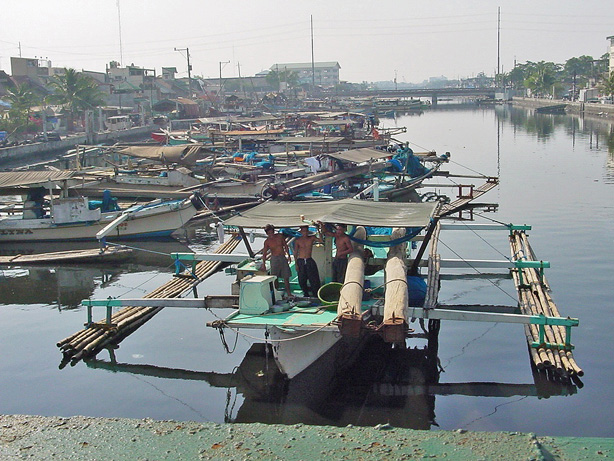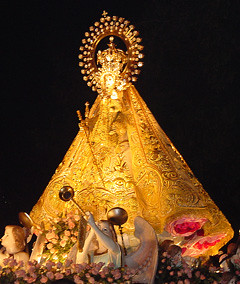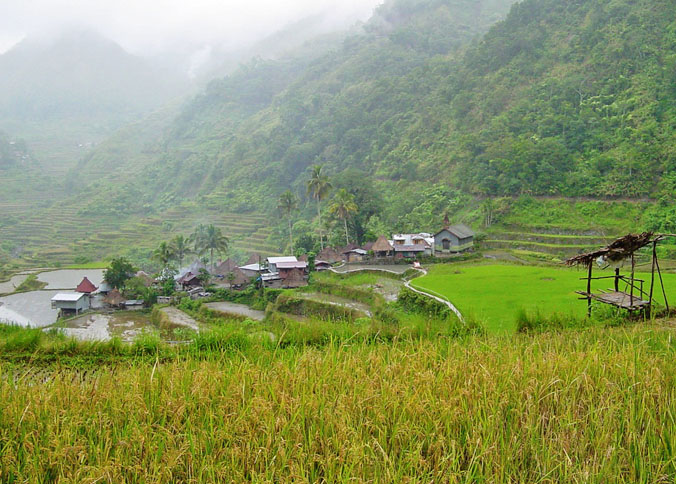NB: This is posted in advance of the date given above.
In many ways, this Sunday's Liturgy builds on the readings we heard last Sunday. You may recall that last Sunday, we considered the patience of God, like a farmer who awaits the fruit of his labour (cf James 5:7 ff). Moreover, this patience was in order that we may have time in which to repent and return to our loving and expectant God. A similar vein is expressed this Sunday.
Sometimes, we hear of Christians who express their faith in rather exclusive ways... lapsed or non-practising Catholics are frowned upon, divorced Catholics are barred from Communion and the current buzz is that all homosexually inclined men may be barred from ordination. In most cases, I assume there are sound theological arguments put forward but I am somewhat discomfited by the undercurrent of elitism that seems to thrive in such conditions. It's almost like a sort of gnosticism: one has to be pure and learned in their faith in order to serve as a Extraordinary Minister of Holy Communion or a lay Reader or even in order to receive certain sacraments. In Evangelical church circles this kind of exclusivity is exacerbated and I have known people who feel cast out because they have sinned publicly in someway or another. Thus abandoned by God (in their perception), they fall still deeper into despair and sin. There can be a certain degree of this too in the Catholic Church: a young Catholic girl in a 'conservative' youth group is shunned because she falls pregnant, a young man is avoided for writing something considered at best, unconventional, and at worst, heretical. Surely though, it is when one sins that one is most dreadfully in need of the Church's healing, teaching and ministry of salvation in Christ?
Now, I am certainly in favour of striving for a holy Church, a virtuous people of God, the baptised in their white garments gathered around the Lamb and in praise of Him. The Church deserves and Christ demands a holy priesthood of the baptised and the Ordained. Of this I have no doubt. Moreover, I would uphold the need of the Church to stand firm in the Truth given her by Christ and the apostles, no matter how difficult and painful it is to do so.
However, sometimes, when we are too quick to judge, to condemn, to cast out and to shun the sinner in our midst we don't give time for the healing action of God's grace in their lives. Already too many people feel cast out by the Church and even if they were to repent, they don't seem to do so in the embrace of the Church, nor do they feel inclined to come home; their first experience was so traumatic and wounding. The current proposal to bar all and even chaste homosexuals from ordination runs the terrible risk of sending a signal (even if this is unintended) that such people afflicted with same-sex attraction are just hopelessly impure and beyond redemption and without the grace to live chaste, Christian lives. The difficulty is that the Catechism teaches that by pure friendships, prayer and sacramental grace homosexuals "
can and should... approach Christian perfection" (cf CCC, 2359). This suggests that homosexuals can be saints and yet, some would propose, they can't be priests or deacons. Are priests and deacons
uber-saints?! There needs to be more informed thinking on this and other issues which touch the hearts of too many Catholics to run the risk of inadvertently alienating them, of pulling up the weeds which may well have the potential to be wheat...

Yet more importantly, we ourselves are sinners. If we require mercy and compassion from God, who are we to look with hardness of heart on our brothers and sisters. I recall my first visit to Armley Prison in Leeds and I went to speak to the sex offenders, who were segregated. No one dared to go speak with them so I made the first move. They looked and sounded so friendly and 'normal', like any one of us there visiting them. I shuddered internally and I thought: "
There but for the grace of God, go I". We all have the potential to sin boldly and spectacularly... Perhaps we have, and what separates us from these others is that we have managed to keep our peccadillos a secret!
For the mystery of sin is that it does not ever overwhelm God's grace, just as the weeds do not choke the wheat in today's Gospel parable. As St Paul said, "
where sin increased, grace abounded all the more" (Rom 5:20). As such, the First Reading extols God who gives us "
good ground for hope, that [He] would permit repentance for [our] sins." (Wis 12:19). This clearly brings to mind
last week's post on Christian hope and God's patience as he awaits our return to Him. As such, the Responsorial Psalm is a meditation on God who is "
slow to anger, abounding in kindness and fidelity" (Ps 86:15). God is slow to act, simply because He hopes in our repentance and redemption and is patient with us who haltingly respond to His grace. We too should be like him, slow to condemn those considered 'bad Catholics' or 'heretics', awaiting with hope and patience the day of their return. This is precisely the mystery of the Church: that although the Church is called to be eschatologically pure, although her very reality and being is the Spotless Bride of Christ, while she is in peregrination on earth, she is composed of saints and sinners; and these the Lord will allow to grow and flourish side-by-side.
This kind of inclusivity is seen in the next two parables in today's Gospel. The mustard tree accepts all kinds of birds to nest in its branches. The thieving magpie, the murderous cuckoo is no more discriminated against than the virtuous pelican and the humble dove. All find a dwelling place in its branches. This is the image of God's kingdom and by extension, the Church. Similarly, the image of the leavened dough is ambiguous. Yeast is a Biblical image of corruption (as well as of good influence). This suggests that the corruption of the yeast is allowed to exist within the pure white flour of the dough; yet another image of saints and sinners in the Church.
Why is this so? Primarily, I believe it speaks of the awesome love and patience of God; itself the very mystery of God who is Love. Who are we to place limits on this? If God in His loving mercy waits for sinners to repent, and constantly woos us with His grace and blessings and even sending His beloved Son, why do we dare to stop hoping and praying and wooing the sinner, the apostate, the heretic to return? The wisdom of this world writes people off as hopeless causes, and sees death as the end... But the Wisdom of God makes possible a Resurrection. Redemption is precisely that act of God which is more wondrous, undeserved and impossible than the initial act of creation; why then do we doubt God's power to convert and save the hardened sinner, the criminal and the dissenting theologian?
For St Paul, in today's Second Reading makes it clear how this is not only possible but almost inevitably so: the Holy Spirit pleads for our cause and intercedes for us. This same Spirit, the grace of God, causes us to repent, to come back to Him. This is why only those who "
sin against the Holy Spirit" (cf Mt 12:32) are not forgiven. Quite simply, these are the ones who do not want to repent, who ignore the "
inexpressible groanings" of the Spirit; even God cannot force us to repent. But for those of us who are weak and "
do not know how to pray as we ought" (Rom 8:26), the Holy Spirit is powerfully present with his grace to aid us.
So, before we adopt the attitude of the elder brother in the parable of the Prodigal Son (cf Lk 15:25-32), let us adopt the attitude of Christ which is to wait patiently, lovingly and hopefully until the harvest time, when He (and He alone) will sit in judgment. In the meantime, His Body on earth must surely humbly mirror Him: "
O Lord, you are good and forgiving, abounding in kindness to all who call upon you... a God merciful and gracious" (Ps 86:5, 15).
Indeed, as St Paul wisely exhorted the Galatians: "
Even if one of you is caught doing something wrong, those of you who are spiritual should set that person right in a spirit of gentleness; and watch yourselves that you are not put to the test in the same way" (6:1). We are advised to support one another and the "
strong are to bear with the susceptibilities of the weaker ones" (Rom 15:1) and so to outdo one another in charity. Let this be our goal, our Christian vocation of love, even as we await the harvest when then alone the wheat will be separated from the weeds. Let us hope that our love and faith, by God's grace, will find us worthy to be gathered into the barn (cf Mt 13:30)!
The photos above were taken in Banaue at the vilage of Bangaan in the Philippines.
 Years before the inception of the European Union, a dream to unite France and Spain across the Pyrenees was born and the railway station at Canfranc in northern Spain was built. It is the second largest station in Europe (after Leipzig), a beautiful complex of buildings in the French chateaux style with art nouveau interiors. Sadly, it fell into disuse when a bridge connection on the railway collapsed, isolating the station in its Aragonese valley.
Years before the inception of the European Union, a dream to unite France and Spain across the Pyrenees was born and the railway station at Canfranc in northern Spain was built. It is the second largest station in Europe (after Leipzig), a beautiful complex of buildings in the French chateaux style with art nouveau interiors. Sadly, it fell into disuse when a bridge connection on the railway collapsed, isolating the station in its Aragonese valley.












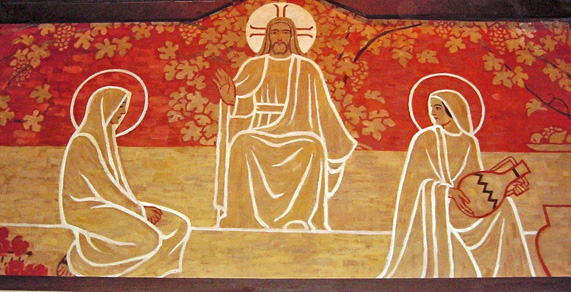

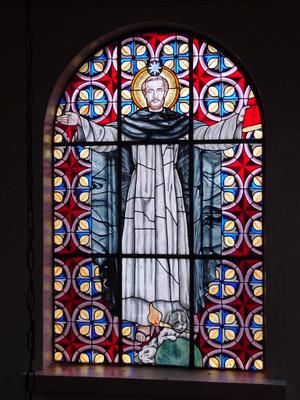

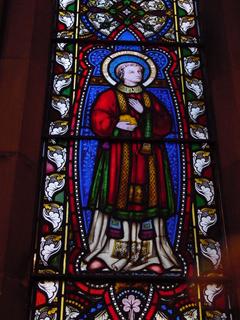
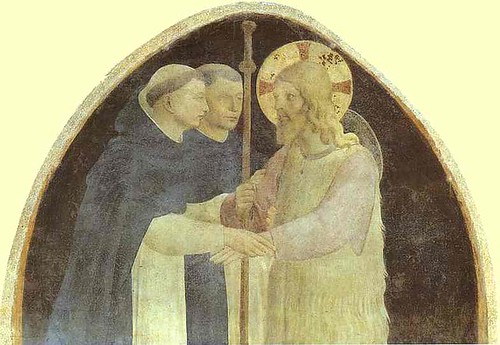

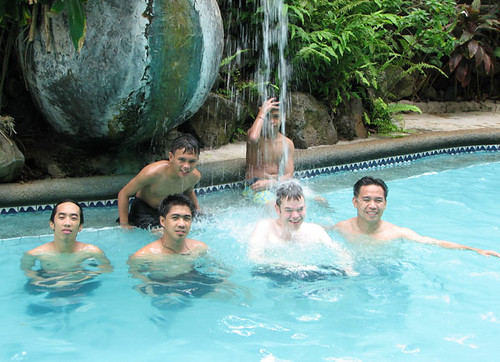
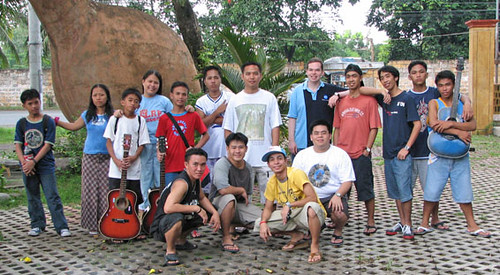
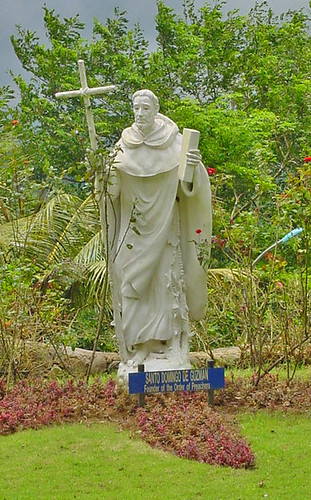 The notion of value is essentially one of perception. If something is perceived of and regarded as valuable, then it becomes so, it attains a certain value attributed to it. Real estate is but mud and soil, pearls are but solidified oyster saliva, gold but a shiny metal and money is but printed paper. These have no intrinsic value apart from what we attribute to it; how we perceive it. In all these cases, usefulness or beauty denotes their worth.
The notion of value is essentially one of perception. If something is perceived of and regarded as valuable, then it becomes so, it attains a certain value attributed to it. Real estate is but mud and soil, pearls are but solidified oyster saliva, gold but a shiny metal and money is but printed paper. These have no intrinsic value apart from what we attribute to it; how we perceive it. In all these cases, usefulness or beauty denotes their worth.
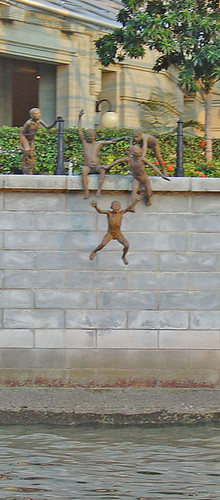 The Singapore river is a hub of commercial activity and trendy bars, pubs and restaurants now line the riverbanks, occupying the premises of revamped warehouses. The riverbank is now shored up by granite and tourist tug-boats ply up and down between Boat Quay and Robinson Quay. It is quite typical of most re-vitalised water fronts in major cities; an efficient place for business and leisure.
The Singapore river is a hub of commercial activity and trendy bars, pubs and restaurants now line the riverbanks, occupying the premises of revamped warehouses. The riverbank is now shored up by granite and tourist tug-boats ply up and down between Boat Quay and Robinson Quay. It is quite typical of most re-vitalised water fronts in major cities; an efficient place for business and leisure.